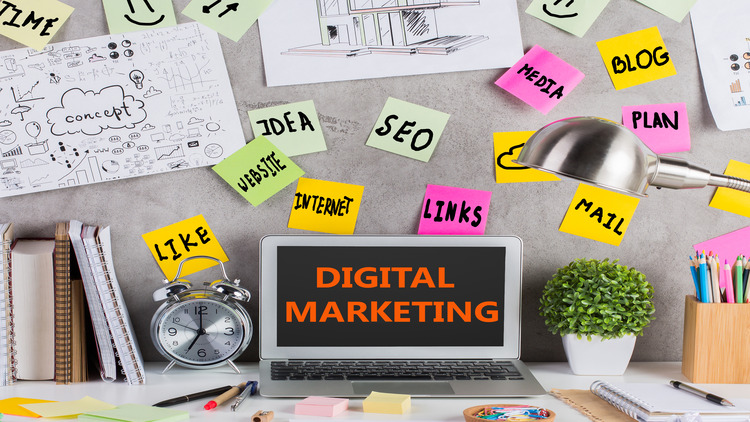In today’s increasingly connected world, digital marketing has become an essential tool for businesses of all sizes. The internet has transformed the way companies communicate with their customers, making digital marketing an integral part of any business strategy. From small local businesses to multinational corporations, the ability to reach a global audience through online platforms has revolutionized how products and services are promoted. With the use of digital marketing strategies, companies can engage with customers in more personalized ways, analyze consumer behavior, and adjust their marketing efforts to meet evolving demands. As the digital world continues to expand, so too does the importance of leveraging digital marketing to stay competitive.
One of the key advantages of digital marketing is its ability to target specific audiences with precision. Unlike traditional marketing methods such as TV ads or billboards, digital platforms allow businesses to tailor their advertisements based on consumer demographics, interests, and behavior. Through tools like social media advertising and search engine marketing, companies can ensure that their message reaches the right people at the right time. This level of customization not only increases the chances of converting potential customers but also reduces marketing costs by eliminating wasted spending on broad, untargeted campaigns. By focusing on specific audience segments, businesses can build stronger connections with their customers and enhance brand loyalty.
Another important aspect of digital marketing is the ability to measure and track the success of campaigns in real time. With tools like Google Analytics, businesses can monitor website traffic, track conversions, and analyze user behavior to gain valuable insights into how their marketing efforts are performing. This data allows companies to make informed decisions about where to allocate their resources and how to adjust their strategies for maximum impact. Unlike traditional advertising methods, where results can be difficult to quantify, digital marketing provides clear, measurable metrics that show the direct impact of each campaign. This transparency enables businesses to continuously optimize their marketing tactics and improve their return on investment (ROI).
Social media has emerged as a powerful force within digital marketing, offering brands an interactive platform to connect with customers on a personal level. Platforms like Facebook, Instagram, Twitter, and LinkedIn enable businesses to engage with their audience through posts, stories, videos, and live streams, fostering deeper relationships with potential and existing customers. Social media marketing not only helps businesses build brand awareness but also creates opportunities for real-time feedback and customer engagement. Through comments, likes, and shares, brands can gauge public sentiment and quickly respond to customer inquiries or concerns. This immediate interaction strengthens the bond between businesses and their audience, fostering loyalty and trust in the process.

Content marketing is another vital element of jasa iklan instagram pakar, focusing on creating valuable, relevant content to attract and retain a target audience. Blogs, articles, videos, infographics, and podcasts are just a few examples of how content marketing can be used to engage with customers. By providing informative or entertaining content, businesses can establish themselves as industry leaders, build trust, and drive organic traffic to their websites. Quality content not only helps improve search engine rankings but also encourages users to spend more time on a company’s website, increasing the likelihood of conversions. In a digital world where consumers are constantly bombarded with ads, content marketing offers a more subtle approach, delivering value to the audience while promoting the brand.
The rise of mobile technology has further emphasized the importance of digital marketing in today’s business environment. As more people access the internet through smartphones and tablets, businesses must ensure that their digital marketing efforts are optimized for mobile users. This includes having a responsive website design, mobile-friendly ads, and easy-to-navigate interfaces. Mobile marketing also opens up new opportunities for businesses to connect with their audience through SMS campaigns, mobile apps, and location-based marketing. By focusing on mobile optimization, companies can reach consumers wherever they are, providing a seamless experience that meets the needs of today’s fast-paced, on-the-go lifestyle.
In conclusion, digital marketing is an indispensable tool for businesses looking to succeed in the modern marketplace. Its ability to target specific audiences, measure success in real-time, and engage customers through social media and content marketing makes it an essential part of any business strategy. As technology continues to evolve, so too will the methods and tools available for digital marketing, offering new ways for companies to reach their audience and stay ahead of the competition. Whether through mobile marketing, social media, or data-driven campaigns, businesses that embrace digital marketing are better positioned to grow and thrive in the digital age. The future of marketing is digital, and companies that harness its potential will undoubtedly enjoy long-term success.
